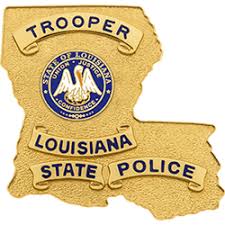
Pro golfers look to cash in at Capital One Classic
June 12, 2007
Beverly Boudreaux
June 14, 2007Rep. Warren J. Triche Jr., D-Thibodaux, was not a happy man when his pet, House Bill 630, died before it ever really got a chance to live.
“The lobbyists made sure this bill was dead on arrival. I can accept that. I’m a big boy. But I will get even, if not in this life, then in another,” said Triche.
Triche had plenty of reason to be upset and vow vengeance. His bill didn’t die before committee, because it was unpopular, contentious or just a bad bill. No, a typo killed it.
Triche’s bill was written to place a manufacturer’s fee on pet food sold in Louisiana at a rate of $20 per ton (one cent per pound).
But Triche said the analyst who put the bill together for him wrote in the abstract of the bill, the “Cliff Notes” for all the legalese, the fee would come at a cost of 20 cents per pound ($400 per ton!).
Triche explained when the lobbyists with the Pet Food Institute (PFI) saw this enormous fee in the abstract, the leapt at the opportunity to promote to everyone, especially those people in areas like north Louisiana, who have many hunting dogs and buy vast quantities of pet food, and those people who have kennels to send up an alarm about the bill.
Triche summed up the lobbyists argument against the bill as basically being, hey, do you want to pay 20 cents a pound more for dog food or do you want to kill this bill?
“And that’s what wound up happening,” said Triche. “It said off an alarm that was faster than anything I’ve ever seen since my 20 years in the House up against a bill before it was even heard.”
Triche said he couldn’t correct the 20 cents listing until the bill went before the committee, but the lobbyists had a two to three week head start to get the wrong word out about the bill, before it could be brought up at committee or amended.
“All they [the lobbyist] had to do is look in the body of the bill and they would know what the bill did, but they took the shortcut version and looked at the back of the bill and got it promoted as 20 cents per pound,” said Triche.
In an act of biting its own tail, or sorts, Triche explained the PFI’s lobbyists were so effective in their campaign against the bill, the PFI’s representative didn’t even bother to come down to meet with him to discuss the bill.
When the bill did come to committee, he said one committee member was in favor of the bill after having the situation explained, but the others wouldn’t approve of it, because their constituents had already been fed the misinformation.
Triche explained the bill would impose a fee and not a tax, because the money the bill generates would provide services for the pet food industry in Louisiana.
First, the fee could be written off for tax purposes, said Triche.
Second, Triche explained the PFU could have billed the fee as a donation to Louisiana for storm victims, people who’ve lost animals.
The revenue generated by the fee would have created in every parish an area where animals lost from the storms could be brought before being euthanized.
The fee would have also gone toward funding surgical and non-surgical services such as spaying and neutering, euthanasia and rabies shots, which are mandated by state law.
“Many of the parishes outside of the large municipalities do not have any funding whatsoever to have rabies control areas, animal control shelters or anything like that,” said Triche.
The parishes would all get the same amount of funding.
And to protect the consumer from the PFI passing the cost of the fee down, the bill would contain a one-year sunset clause to act as a trial effort. If the PFI did pass the cost down to the consumer, the bill would just die in a year.
Triche has gotten the House Appropriations Committee chairman to let him place the bill into its correct posture, correct the 20 cents error in the abstract and amend it to reduce the actual tax by half, imposing a $10 per ton fee instead of a $20 per ton fee, and add the one year sunset clause to it.
“In my comment about, ‘I’ll get even with these guys in this life or the next,’ I should have been a little more clear at least and said this political life or next,” said Triche. “Because if I run for the senate, I’ll make sure there is a truth in lobbying type bill that comes up. When lobbyists read bills and produce information that is not correct that there would be some kind of penalty these folks would have to adhere to.”
Triche said his bill basically copycats another bill from several years ago. He brought it up at the request of one of his constituents, who happens to be a Hope for Animals volunteer.
While Triche certainly faults the lobbyists, the media didn’t do him any favors, either.
“Even my newspaper guy put the wrong information in, even after hearing the correct information, when I went to the committee,” said Triche.









